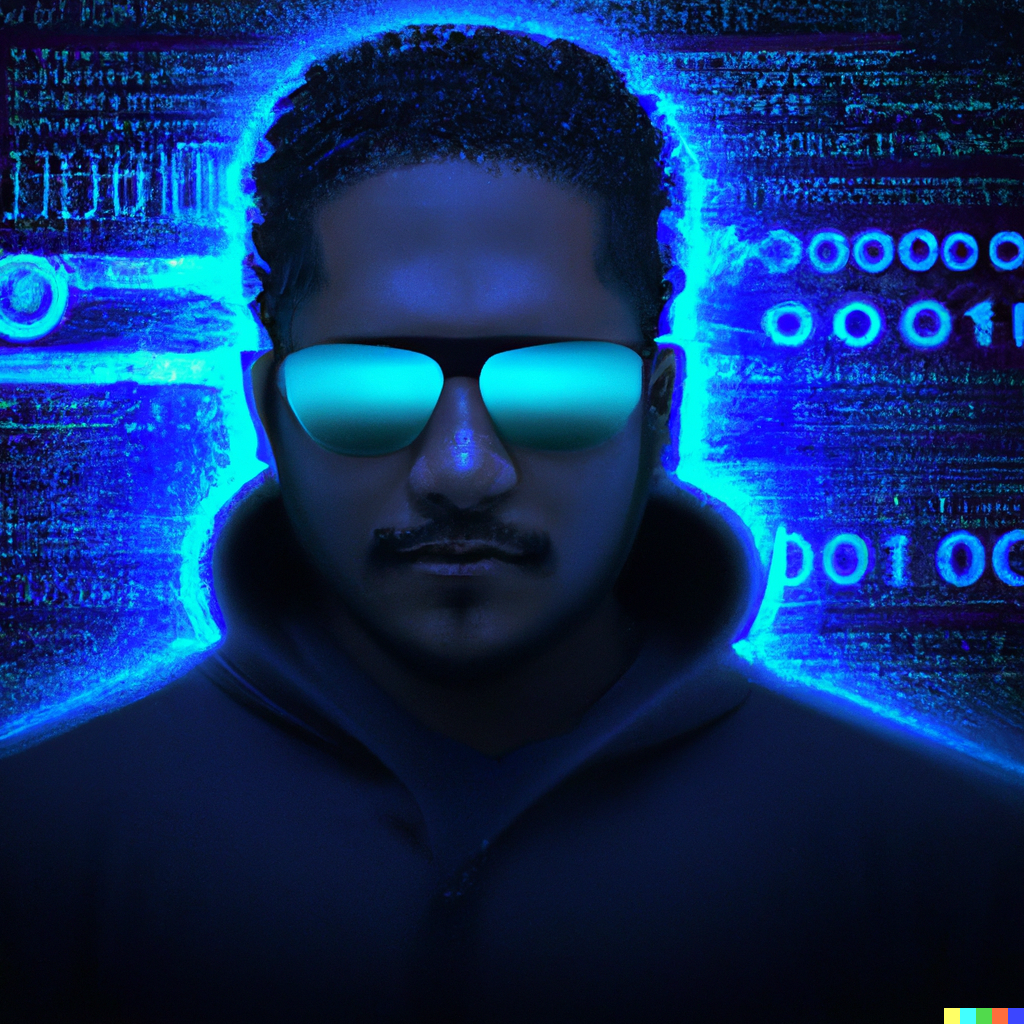I’m just curious about this. As someone with a chronic illness, I pretty much never hear anyone talk about things related to the sorts of difficulties and discrimination I and others might face within society. I’m not aware of companies or governments doing anything special to bring awareness on the same scale of say, pride month for instance. In fact certain aspects of accessibility were only normalized during the pandemic when healthy people needed them and now they’re being gradually rescinded now that they don’t. It’s annoying for those who’ve come to prefer those accommodations. It’s cruel for those who rely on them.
And just to be clear, I’m not suggesting this is an either or sort of thing. I’m just wondering why it’s not a that and this sort of thing. It’s possible I’m not considering the whole picture here, and I don’t mean for this to be controversial.
I mean, you’re basically describing the point of intersectional activism.
Time for a wiki-kick. I don’t know much about it. I’ve literally been living outside society for over a decade.
It’s harder to throw a parade?
Christ 😂
I’ll settle for a cereal box. :P
Early Tomm Scott.
There’s the ADA in the States at least.
Used to be no place had ramps and no curb cuts.
Not perfect, but it is better.
I think the ADA is a positive step, but that was over three decades ago now. The silence in terms of further steps since then is significant.
IIRC, the LGBTQ rights gains of the 2010s were accompanied by the message that it’s not a choice.
Too many people still believe that health and ability are markers of virtue. These people believe that a sick or disabled person must be undersleeping, forgetting their vitamins, being lazy, skipping church, eating junk food, or even thinking negative thoughts. It’s a big lie people tell themselves to feel safe. “I do everything right, so nothing bad can happen to me.”
It won’t get any better until everyone realizes that it can happen to anyone.
deleted by creator
It’s not stupidity, it’s the Just World Hypothesis. A classic example is that thing people do when when driving by a car accident. Many people will look at the wreck and say, “They must have been texting.” Or, “They must have been speeding.” People make up fanfiction to reinforce their feelings of safety. The same thing happens with health and ability.
Wow, you’re a dick
Pride makes money. Companies make money off pride merch and it costs them $0 to be inclusive of LGBT+ people.
But god forbid they do anything beneficial if it doesn’t make them money or gasp cost money. That’s why they actively find new ways to discriminate against disabled people without it being too obvious so they can skirt the law. Plenty of disabled people can do just as good or better at a job than an able bodied person with accommodations, but you’re immediately a threat to a company if you request those accommodations. And then of course, just like anti union propaganda, the general public gets told that disabled people are greedy moochers that need to fuck off out of society.
I worked for a company that is vehemently anti WFH. They had everyone working remotely for all of COVID no problem. But now if a disabled person requests WFH as an accommodation they are told it is “not reasonable” and it is denied. It’s very easy to get away with discrimination against disabled people because a lot of us are just trying to get through the day. Sitting in a court room to fight a company that will extend the lawsuit as long as possible sounds like my own personal nightmare. Hell, speaking of court even FUCKING JURY DUTY won’t accommodate a lot of disabled people. That’s literally the government and they don’t give a fuck. I speak from experience.
Like most things, the answer is money. They want able bodied workers they can make money off the back of for the minimum amount possible.
Sorry this turned into a rant lmao
People don’t take pride in those things like they do being gay, bi or trans.
Even in that regard, people who have cancer are often portrayed as fighters, survivors and what not. We don’t frame people who deal with chronic issues day in and day out for the rest of their lives that way though, or at least not to the same extent. We don’t treat it as if they have something to teach healthy people about resilience.
At most we have overly happy ads for medicines which constantly mischaracterize what it’s like to live with certain conditions and which give healthy people the perspective that help is just a drug away. I’m not saying those can’t help, but the ads give the impression that if you’re not living a full life, that’s on you because we’re surrounded by miracle cures.
Some mental illnesses are “cool” or “accepted” now. They are socially acceptable to talk about and having one can even give you clout. Depression and ADHD are in this category.
The rest of the disabilities are still too taboo to talk about. You are better off just keeping it to yourself. Bipolar, schizo-affective, and borderline personality disorder are in this category.
Today, people will tell you with a straight face that they are a victim because they have one of the popular illnesses. It is “in” to be a victim now but, ironically, it’s only socially acceptable to be a victim of some illnesses. If you have e.g. bipolar disorder it’s so stigmatized that you will face repercussions for announcing it yet people still have the audacity to tell you they are a victim.
I don’t think it is about taking pride in being ill, pride was just an example. Its likely more about visibility and having rights and accommodations.
Although, they should be proud- not proud to be ill, but proud of their ability. Sick and in pain people have to traverse a world most people could never imagine.
I’m a proud depressive with adhd, don’t ask me anything please leave me alone
No point in riding bikes, then?
Fellow cripple, chronic pain sufferer who struggles to function in society. It sucks. We get no help. Everybody around us gets help but us
That sounds pretty bitter, and a little misguided.
I’m sure it sucks, but I bet I could find plenty of marginalized groups that get less support per capita.
The ADA has changed construction across the US for decades. Any substantial renovation involves bringing preexisting structures up to code. That is not nothing. I’m sure it’s hundreds of billions of dollars nationally in accommodations.
The ADA has made you a protected class for decades longer than LGBTQ folks.
It might be slower than you want, and I’m sure it’s still not enough, but it is far more than you’re suggesting. And probably receives more money than any other marginalized group in terms of dollars spent on accommodations.
While none of your points are necessarily wrong (although they are mostly vague), none of them do anything to help a disabled person right now.
Everything about this post is vague. Everything about your post is vague. What disability? What help do they need right now?
We have TTY services for the deaf, you can text most places or email with them now instead of calling.
Everything constructed in the last 20 years has ramps, elevators and plenty of handicap parking.
NYC has been spending billions retrofitting elevators into 200 year old subway stations.
Things are being done - but mobility is an infrastructure problem that works on infrastructure timescales.
You can make gay marriage legal overnight, you can’t magically retrofit buildings overnight. You can’t hire 10 million more special needs teachers. You have to train them.
Which is another great area - look at how much more we do for special needs kids in school - they get aides in integrated classes, and far more 1x1 attention than any other kid in a public school.
I am not saying it’s enough, or that anyone is done, but this “no one sees us and no one is helping” thing doesn’t actually ring true to me.
What’s your experience with chronic illness?
That it’s better to not have one than to have one.
Which chronic illness are we talking about? There’s a lot and have wildly different societal needs.
You speak the truth. And Jack O’Neill is awesome (Two l’s!).
Corpos can’t monetize it as easily as they can with lgbqt
Well, I don’t really feel like sharing that I have bouts of nearly debilitating psoriatic arthritis at 33. It’s not something I wanna take pride in. Can’t even get into a rheumatologist for another year.
If it’s worth anything, all the visibilization, representation and positive portrayal of disability and chronic illness I’ve ever seen (and it has steadily grown in the past 10 years in my experience) has come through LGBT+ or LGBT+friendly spaces or hand in hand with them (once again, in my experience). I don’t known how mainstream it is though, since my browsing habits are not that mainstream
LGBT and chronically ill checking in. So, the biggest reason (in the US) is because the chronically ill haven’t had their civil rights movement. I think a lot of history books gloss over just how many riots there were pre 2000s to gain basic human rights. Pride parades are not just a big party - they’re a commemoration of the stonewall riots. Protests were held annually for years, and cities began sponsoring the marches so they’d become peaceful protests. Now we have parades. It was a constant uphill battle with people fighting against their very existence being illegal. For being jailed, tortured, or murdered for showing their sexuality. For being blamed because someone who’s repressed or in the closet considers someone who’s out to be “temptation”.
LGBT rights are much closer to black and womens rights than they are to chronic illnesses. We don’t see people being jailed for needing a wheelchair, or murdered for having an auto immune disease. If you can get a large number of people to riot for the right to work from home, you might get results. Until then we’ll have to wait until things change through the legal system.
That all makes a lot of sense, but I would point out that people with disabilities and illness have been murdered for their conditions even in our recent past. It was actually a story about a German politician wanting to remove kids with disabilities from schools which got me thinking about this. It feels like we’re one or two bad ideas away from persecution of the sick and disabled becoming a very present concern again.
And personally speaking, it is true what you say that I’m not jailed for my condition, but as far societies willingness to extend accommodations to make life more livable for myself and others like me, it’s as if I’ve been largely under house arrest for over a decade. The isolation and anxiety that people experienced for a brief period during the pandemic has been my everyday life for years and years.
It’s hard to have your movement when you’re disabled. I think we chronically ill will need allies more than other groups have.
I dont think I understand what is the end goal of this question?
Understanding is the only goal.
LGBTQ+ issues are kind of a warzone right now, because conservatives see trans rights issues especially as a wedge issue they can use to pull in people who might support gay marriage but still feel confused or grossed out by things like trans women using women’s bathrooms.
This conversation eats up a lot of the space that could be used to talk about things that would (should?) actually be less controversial, like accessibility.
Conservatives don’t want to talk about it because it would be a straightforward loser for them. Lots of progressives don’t have time to talk about it because they’re circling the wagons to fight for trans people having the right to… (checks notes) exist.
This isn’t to say disability issues aren’t as important. The point of intersectional activism is for many disparate groups to fight together against the kinds of people who want to separate them. A rising tide that helps everyone.
It sucks because it’s slow and painful and people get increasingly tribal when they feel under threat.
Advocating for glbtq rights does not endanger the main power structure. Advocating for people suffering from chronic illness would require fundamental changes to how healthcare is distributed, and thus directly affect the bottom line of some very powerful interests.
A few difficult reasons.
- People with chronic illnesses frequently don’t have the energy to make noise and bring attention to their cause.
- People with significant disability usually aren’t hiding in the halls of power, blending in. It’s significantly easier to hide a non-straight sexuality for long enough that you can be the decision maker who makes reform happen.
- Disability is so varied, one person with one disability can’t know what it is like to have a different one. This stymies cross-disability advocacy. This gets even harder for family of people with disabilities, who only conceptually maybe understand their loved one’s conditions, let alone other people’s
- Accessibility accommodations can be complex and can be expensive, LGBT+ inclusion is extremely easy and low effort by comparison.
- Understanding how disability affects daily life pervasively is harder than understanding “those two people are in love”. Most people internally assume everyone else has roughly the same abilities and needs as themselves.
- People with congenital conditions are frequently conditioned into not asking for better treatment. They get used to being second class citizens because it’s all they’ve ever known.
- “Coming out” with a disability casts doubt on your ability to “perform” in the workplace. It’s very risky, the stigma of disability is huge and impacts how people evaluate you
- Most people with disabilities don’t consider themselves disabled. For example, glasses are one of the world’s most common disability aids, but you’ll never hear them referred to as such; and rarely will their users consider their poor eyesight a disability. Mobility disabilities are often written off as “I’m just getting old” or “I’m just a little unfit lately” or “it’s just an old injury playing up” instead of “I have a medical condition which limits my daily life”.
There’s more, I’m sure I’m forgetting a bunch.
Edited to add a huge one:
- People who are born with disability or who acquire them at a young age are frequently unable to access the type of formal education that allows them to become professionals. This makes it even harder for them to be visible in workplaces, because they’re considered “unskilled”. It also means you won’t see people with disabilities regularly in offices. Out of sight, out of mind for everyone else.
And another:
- Money is medical privilege, and the people with the most money make the types of decisions that affect larger quantities of people. For people with disabilities who are born to wealth or who are able to acquire it, their medical conditions can be better treated, managed and therefore hidden. This can result in those people and the people who surround them to not feel like the illness is “a big deal” and hence it’s not a priority issue. It’s when people with significant money are negatively affected that you begin to hear about the barriers people with no money experience all day long.
This is a great write up. Thank you.







